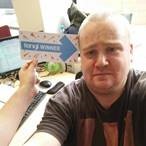Of the 120 million people who live in the Philippines, 20
million live in Manila. It is a lively, chaotic, vibrant city with the dubious
honour of ‘world’s worst airport’ (and the 5th worst traffic
system). Yet within this glorious sprawling mass of humanity there is a
fantastic story of success.
Manila is the home of the Asia’s oldest water utility,
dating back over 135 years. The water infrastructure is suffering from old age;
crumbling leaking pipework, designed to serve populations far smaller than
those of today. In 1997, with less than 50% of the population receiving a reliable
water supply and non-revenue water (ie, water lost to leaks or theft) at 60%
the government decided to create two new water companies - Manila Water and
Maynilad Water. Manila Water was given the west of the city, serving the richer
and more prosperous. Maynilad got the poorer east. 90% of the national water
debt was held in the Maynilad area. Their job was to turn things around. It
didn’t work.
In 1998 the Asia crisis kicked in, compounded by a drought.
Rather than dropping, the amount of non-revenue water loss increased to nearly
70%. Things got so bad that in 2005 the water assets were temporarily
re-adopted by the regulator. A re-boot was needed.
In early 2007 MPIC, an investor with a track record for
turning around tough infrastructure investments (in telecoms and power…. but
not water) took on the challenge. Professors in the business classes of the
future will refer to the CEOs mantra to his staff for them to ‘Eat, drink,
sleep non-revenue water’. His leadership and example drove a culture
change, that led to an incredible performance change.
In 2013 Maynilad Water was described by the International
Water Association as having achieved the ‘most aggressive turn-around in the
world’. 90% of the population now have a reliable 24 hour supply of water. Non
revenue water is down to below 30%. This has been achieved through exceptional
asset management – assessing the system, focusing their investments, applying
new technology wisely (this is why Isle has been working with them). Through
the newly formed Maynilad Academy the team now proudly share their experiences
with other similarly-challenged utilities in Asia.
However, don’t be fooled into thinking the high performing
team at Maynilad are resting on their laurels. Their current non-revenue target
is 15% (half the current level). And, as if that wasn’t enough, their focus is
squarely set on resolving the 90% population who don’t have access to reliable
sanitation. I can’t wait to watch how they will perform.
In my 36 hours in Manila I learnt many other things.
Firstly, despite the literally thousands of people at the airport begging for
your custom, don’t take an unofficial cab. You will be very poor by the end of
the journey. Secondly, if you want to show respect then end your sentence with
the word ‘Po’ (ie ‘Thank you Po’). Thirdly, Rhubarb Crumble, that
quintessentially English pudding, is a popular dessert at the swanky BlueBird
Restaurant. It doesn’t however contain much Rhubarb.
This is an improvement.
